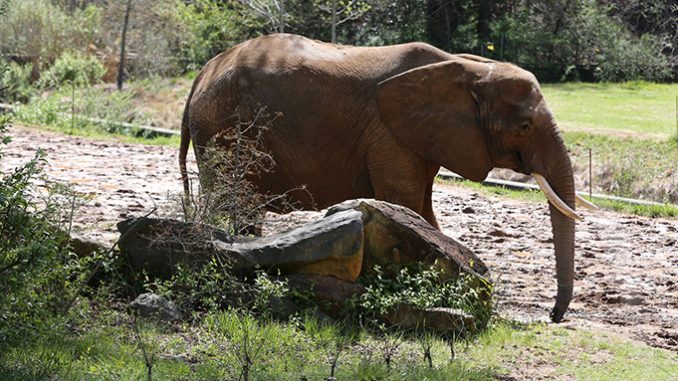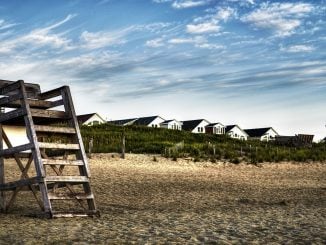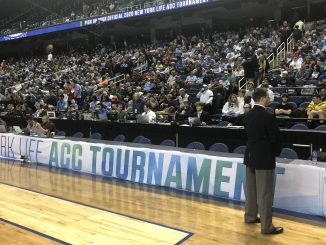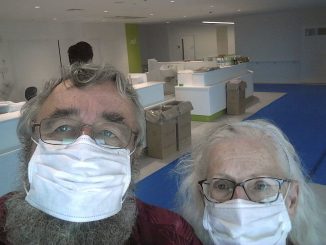
Gov. Roy Cooper’s announcement last week that the state will remain in Phase 2 for at least five more weeks left many North Carolina residents wondering just when daily life will return to normal. Despite the ongoing social distancing mandates that remain in effect and the various capacity restrictions on certain businesses, it seems people across the state have spent the summer finding ways to venture back out and discover what some of North Carolina’s best outdoor attractions have to offer.
To be sure, the coronavirus has taken its toll on North Carolina’s tourism industry. In a normal year, the state attracts more than 51 million visitors, making it the sixth most popular place in the country for out of town travelers. However, as a result of the pandemic, travel spending this year is off by nearly 70% and almost two thirds of the state’s hospitality workers, which includes bars, restaurants, hotels, resorts, and tour operators have been left without a job.
There are, however, bright spots. For instance, locals who are unable or hesitant to travel very far are discovering in state attractions where under normal circumstances they may have had to compete with long lines and crowds. According to Michele Walker, Public Information Officer for the N.C. Department of Natural and Cultural Resources, there are many attractions across the state that are currently open to visitors even while we remain in Phase II.
“As for our sites, N.C. state parks have largely remained open throughout this time, with campsites opening for visitors in Phase 2,” she says. While some areas at state parks, such as visitors’ centers and inland swimming beaches, remain closed, Walker says the North Carolina Zoo opened to the public in mid-June for an outdoor experience, with reduced capacity and timed ticketing. “State historic sites also opened their grounds to the public in Phase II although state museums remain closed to the public,” Walker adds.
Wit Tuttell, the executive director of Visit N.C. says while there will be new dynamics to tourism as we all know it, he believes the key to getting back to normal is showing people travel can happen in a safe way. “There will be new dynamics to tourism and it will be competitive, but North Carolina is well-positioned because we’re perfect for what people want: space and outdoors.”
Tuttell pointed to the N.C. Zoo as one of the area’s main attractions that had done a great job of maintaining a certain level of tourism even throughout the lockdowns. “I’ll say they’ve done a great job pivoting to a timed entry process to allow them to maximize their attendance in a manner that is safe and ensures that visitors maintain a proper social distance,” he says.
Outdoor attractions have a better chance of being able to adjust. Many visitors don’t feel comfortable going to indoor attractions regardless of what they do to accommodate people. But not all outdoor attractions are successful at figuring out how to safely reopen.
After a series of updates since the virus first took hold in the spring, Carowinds just announced on August 4th that they will remain closed for the rest of 2020. The park issued a statement saying, in part: “As you know, we previously extended 2020 Season Passes and add-on products to be valid through 2021. To further show our commitment and appreciation, all 2020 Season Passholders will now also receive a Pass Perks™ Loyalty Reward valid for purchases within the park next season. Day tickets sold for the 2020 season will be valid through September 6, 2021. Season Passes for 2021 will go on sale beginning September 8, 2020.”
According to Visit N.C., the state has lost around $6.8 billion in visitor spending so far this year. That’s a 57.9% decrease from 2019 (covering the period from March to August). Tuttell says that equates to a loss of $494 million in federal tax revenue, $235 million in state tax revenue and $142 million in local tax revenue from visitor spending.
Other key impacts to the state’s tourism industry:
Commercial hotel revenues (STR) down 44.7% for first six months of 2020 as compared to first six months of 2019.
However, entire home rental revenues through Airbnb/HomeAway were up 16.8% over the same time period.
For restaurant data, from Jan to May 2020 for the business code 306 (restaurants, cafeterias, grills, snack bars, etc.), taxable sales were down 16% from the same time period in 2019.
From March to May 2020, sales were down 29% from the same time period of 2019.
“The impact is obviously huge with the loss of $6.8 billion in visitor spending. We are making a quick recovery in some areas. We’re seeing strong interest from leisure travelers, however business travel meetings and events are still essentially shut down. This impacts urban destinations more heavily than rural areas. Visitors are also looking for outdoor experiences to travel in a COVID-safe way,” says Tuttell.
Visit N.C. has noticed a big impact on event spaces and indoor attractions like museums. Many of them have to completely overhaul their visitor experience in order to allow people to visit them in a safe way. As for the N.C. Zoo staff clean and sanitize restrooms, and all frequently touched surfaces throughout the day. Additional hand sanitizer stations have been placed throughout the zoo for guests to use. Trams are sanitized in between guest use, picnic tables, drink and vending machines are also sanitized on a frequent basis. The zoo has still not opened indoor habitats, it is an outdoor experience. The indoor gift shop is open but is strictly enforcing a max capacity.
The biggest change to zoo operations is the advance purchase of timed tickets for entry into the zoo. Walk-up entry is not available, everyone must pre-arrange their visit, including members or those holding previously purchased tickets. “This new system is in place to control the number of people in the zoo at any one time,” says Diane Villa the Director of Communications and Marketing for the N.C. Zoo. “The zoo is currently in Phase 2 with a max capacity of 2000 each day. We will be increasing gradually to a max of 3000 by Labor Day on weekends, with 2000 during the week. This is roughly 20% of our normal capacity.”
There have been several relief programs for businesses from federal, state and even municipal entities such as the Golden Leaf Foundation’s Rapid Recovery loan program, SBA loans and the N.C. Department of Commerce’s new Job Retention Grants. In addition, Visit N.C. is developing a cooperative marketing program funded by the CARES Act that was awarded as part of the state’s Coronavirus Relief Fund.
As things continue to open up the state’s tourism sector is figuring out what the future will look like. Hotels, restaurants, and resorts are doing all they can to show that new procedures and enhanced cleaning will keep the virus at bay. As health officials continue to note, “people won’t get back on the road or in the skies until they feel confident the tourism sector is taking all the necessary precautions to protect public health.”
Tuttell says he has noticed several clever programs that have been organized to help businesses survive. For instance, many municipalities have relaxed their restrictions to allow restaurants to offer seating outdoors and the N.C. Restaurant and Lodging Association started a relief fund for restaurant workers. In addition, Chatham County recently kicked off its Food Hub.
The Chatham Food Hub allows families to pre-order food from their favorite local businesses and pick it up at one location. The hub is located at Bray Park in Siler City and operates like a drive-through food court.
“The Chatham Food Hub is a one-stop shop to safely buy food from multiple local businesses that the community knows and loves,” says Neha Shah, director of the Pittsboro-Siler City Convention & Visitors Bureau. “It’s a win-win for so many hard-working people in our community as the purchases will support the local economy and create jobs for Chatham County residents.”
Eleanor Wertman, the UNC Health Alliance Program Manager for Community Health, says she hopes the Chatham Food Hub will provide a fun, safe way for people to support local business and enjoy a good meal. “After months of restrictions related to COVID-19, we are excited that this effort will help feed Chatham County families and at the same time give local restaurants, farmers and caterers an economic lift.”





